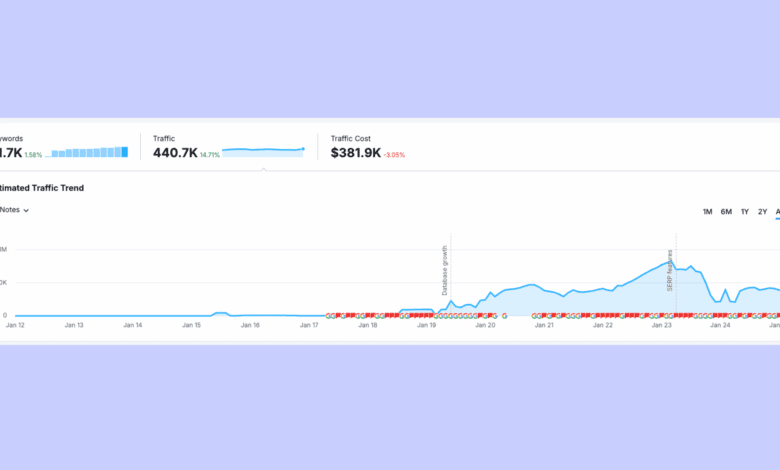Audit Your Brand with Search Data: A Step-by-Step Guide

▼ Summary
– Big brands often overlook search data, which reveals user questions and concerns about their products, exposing gaps in brand trust and positioning.
– SEO tools can provide valuable brand audits by analyzing search trends, competitor data, and sentiment without requiring additional tools.
– Case studies like Gatorade and Powerade show declining branded search traffic, indicating industry shifts and consumer skepticism about product healthiness.
– User questions in search engines and AI responses highlight widespread skepticism, with phrases like “Is Gatorade actually healthy?” signaling distrust.
– Major brands fail to address health concerns effectively, missing opportunities to align messaging with consumer sentiment and capitalize on market trends.
Understanding your brand’s true health means looking beyond surface-level metrics and diving into what people are actually searching for online. Major brands often overlook this goldmine of consumer insights hidden within search data, missing critical opportunities to address concerns and strengthen their market position.
Take sports drinks as an example. When Gatorade’s branded traffic suddenly dropped in early 2024, the clues explaining why were already visible in search trends. Comparing search volumes year-over-year revealed a 35,000 monthly search decline in the U.S. alone—a red flag signaling shifting consumer interest. Similar dips appeared for competitors like Powerade, suggesting broader industry pressures rather than isolated brand issues.
Digging deeper, search queries exposed widespread skepticism. The top question for “Gatorade” wasn’t about flavors or athlete endorsements—it was “Is Gatorade actually good for you?” with 12,100 monthly searches. The same pattern emerged for competitors, highlighting a trust gap across the entire category. Google’s “People Also Ask” feature reinforced this, surfacing concerns like daily consumption risks and athlete avoidance—questions brands weren’t proactively addressing.
AI tools like ChatGPT and Google’s overviews echoed these doubts, emphasizing sugar content and health trade-offs. Yet brand responses were telling: Gatorade’s homepage ignored health claims entirely, while vitaminwater—despite its name—buried health messaging in footers. This disconnect between consumer concerns and brand communication creates openings for competitors.
The takeaway? Search data isn’t just for SEO. It’s a real-time brand audit tool revealing:
- Market shifts (e.g., rising interest in “healthier” alternatives)
- Consumer sentiment (via question trends and AI-generated answers)
- Competitive threats (like vitaminwater’s traffic spikes during rival declines)
Brands that leverage this data gain an edge, spotting issues before they escalate and crafting messaging that resonates. The tools are already in your stack—semrush, Google’s People Also Ask, AI overviews—waiting to transform raw queries into actionable insights. Ignoring them means flying blind while competitors seize the narrative.
(Source: Search Engine Land)


